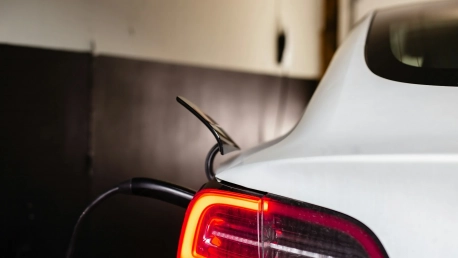The transition to electric vehicles (EVs) symbolizes a significant leap towards sustainable transportation, but it’s a leap that many find financially daunting. A recent survey by Startline Motor Finance projects the consumer sentiments surrounding the adoption of EVs with a spotlight on their affordability and accessibility. While electric cars herald an eco-friendly future, their widespread adoption is impeded by economic constraints, revealing an urgent need for government support to bridge the gap.
Tapping Into the Cost Concern
The High Price of Going Green
Electric vehicles are more than just transportation; they represent a commitment to environmental stewardship. However, the steep purchase price of EVs often eclipses their green benefits. For the majority of motorists, the dream of owning an EV is gated behind prohibitive costs. They are calling for more than just incentives; they seek substantial reforms that include reduced sticker prices and transformative policies that could recalibrate the market. The issue isn’t just the upfront cost; deeper concerns persist regarding the long-term financial impacts of owning an EV, encompassing the installation of home charging stations and the cost of the electricity needed to power these modern chariots.
Streamlining the EV Purchasing Experience
Besides cost, the complexity of the purchasing process is another deterrent. Potential EV owners are not just buying a car—they’re investing in a lifestyle change, and they require a process that’s as smooth as the ride of an electric motor. Simplifying the EV buying journey involves clear information, accessible financing arrangements, and assurances that it is as convenient as acquiring a conventional vehicle. The findings from Startline Motor Finance’s survey reflect a widespread desire for a less burdensome path to EV ownership—one that aligns with the consumer’s expectation for simplicity and transparency.
Expanding Infrastructure and Support
Creating a Robust Charging Network
Ease of use extends beyond the initial purchase to the daily operation of the vehicle, and this is where charging infrastructure takes center stage. Consumers are clear in their message: the expansion of the charging network is paramount. The anxiety surrounding the availability of charging stations deters many from taking the EV plunge. There’s a pressing need for a dense network of charging spots, one that assures motorists that their new electric companions won’t leave them stranded.
Reducing Energy Costs for EV Owners
The cost involved in actually powering EVs is another significant concern. While saving on gas is a notable benefit, replacing it with equally expensive electricity bills provides little solace. Consumers urge the government to look into strategies that lower the energy expenses associated with EVs. Whether through subsidies, off-peak charging incentives, or renewable energy integration, the goal is clear: make powering an electric car as economically favorable as it is environmentally.
The Road Ahead: Government Influence and Policy Implications
Shifting to electric vehicles (EVs) is a substantial step in the direction of eco-friendly transit. However, the financial hurdle associated with this switch remains prohibitive for many. Insights from a survey by Startline Motor Finance highlight public opinion on the transition to EVs, focusing particularly on their economic viability and general accessibility issues. While EVs champion a cleaner future, their mass acceptance is currently stifled by financial barriers. This situation underscores the critical necessity for governmental intervention to make these vehicles more attainable for the average consumer. The promise of EVs represents progress, yet without economic assistance, it remains just out of reach, signaling the need for policy that supports a broader, budget-friendly embrace of sustainable automotive technology.









